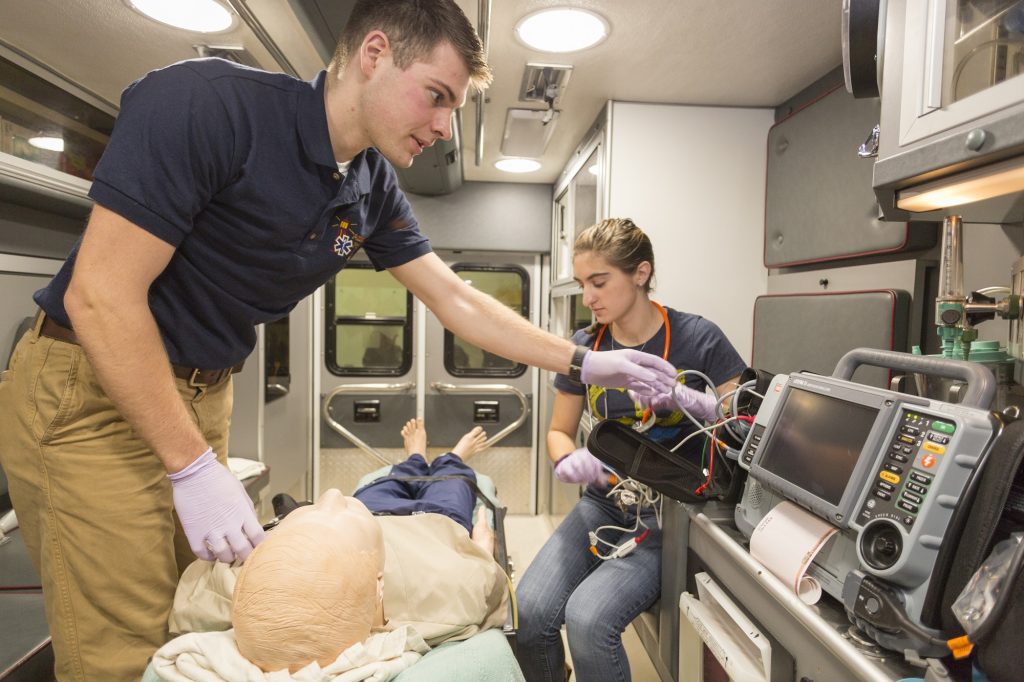Emergency Medical Services

Prerequisites Required for Certificate or Degree Program
- High school level Algebra I and a science course with lab is required for admission to either the certificate or associate in applied science degree in Emergency Medical Services. More information about the application process and prerequisites can be found HERE.
- Students wishing to apply must have a current National Registry EMT or State EMT license.
The Emergency Medical Services (EMS) Technology program provides the opportunity to earn a certificate and/or an associate in applied science degree to individuals who work with ambulance services, rescue squads, fire services and other first responder organizations. The program augments a nationally recognized technical core with general education courses and is typically taken on a part-time basis over three to four years due to the length of AEMT (6 months) and Paramedic licensure classes (9 months).
Emergency Medical Technician (EMT)
Fall EMT class info coming soon!
Advanced EMT (AEMT)
- Students must complete ALL required courses prior to receiving approval to complete NREMT Testing.
- Students wishing to apply must have a current National Registry EMT or State EMT license.
- Students accepted to the EMS Certificate program are not guaranteed acceptance to the EMS Program.
- Federal financial aid is not available for students seeking certificate programs.
Click here for Paramedic Program Educational Outcomes

